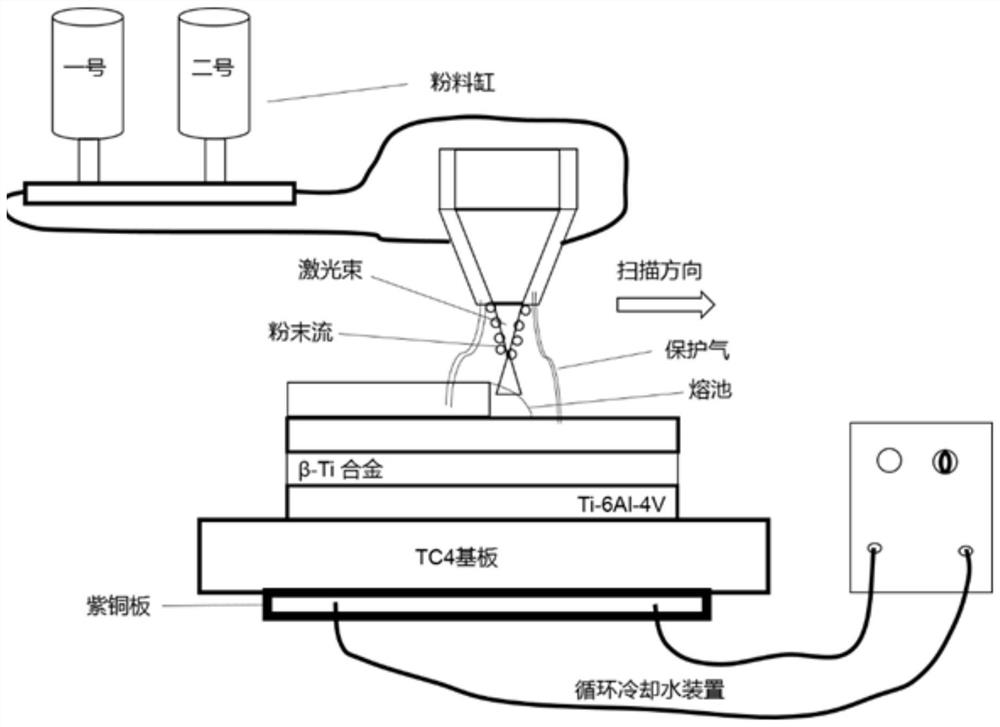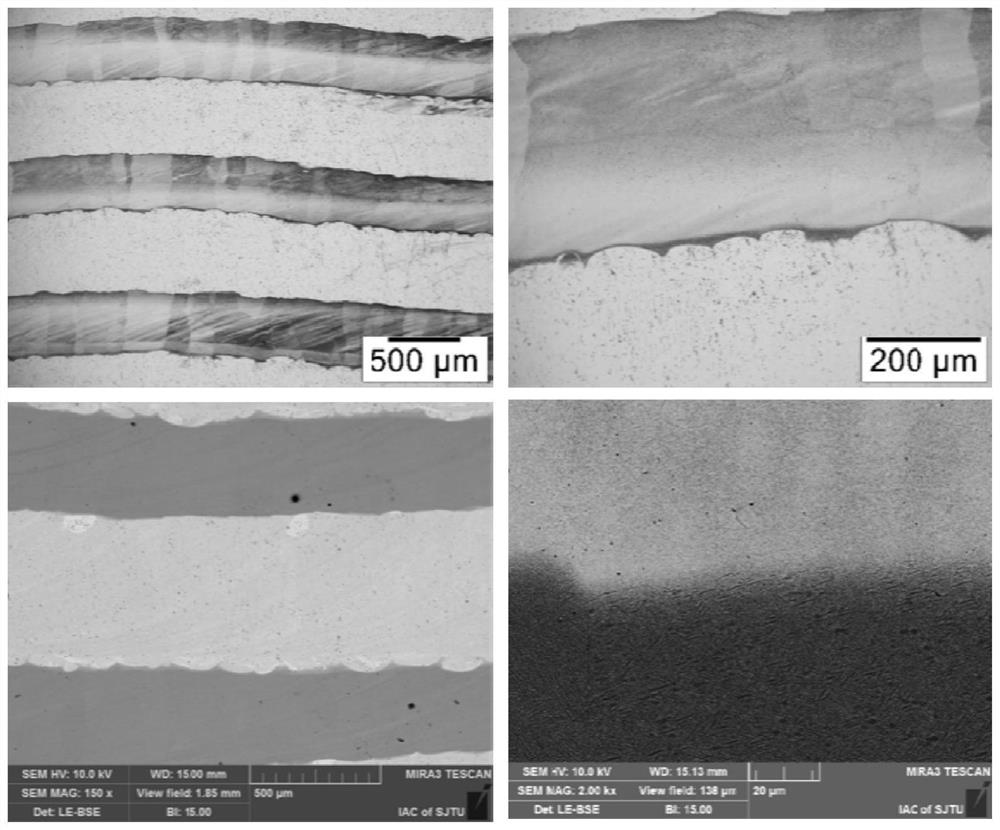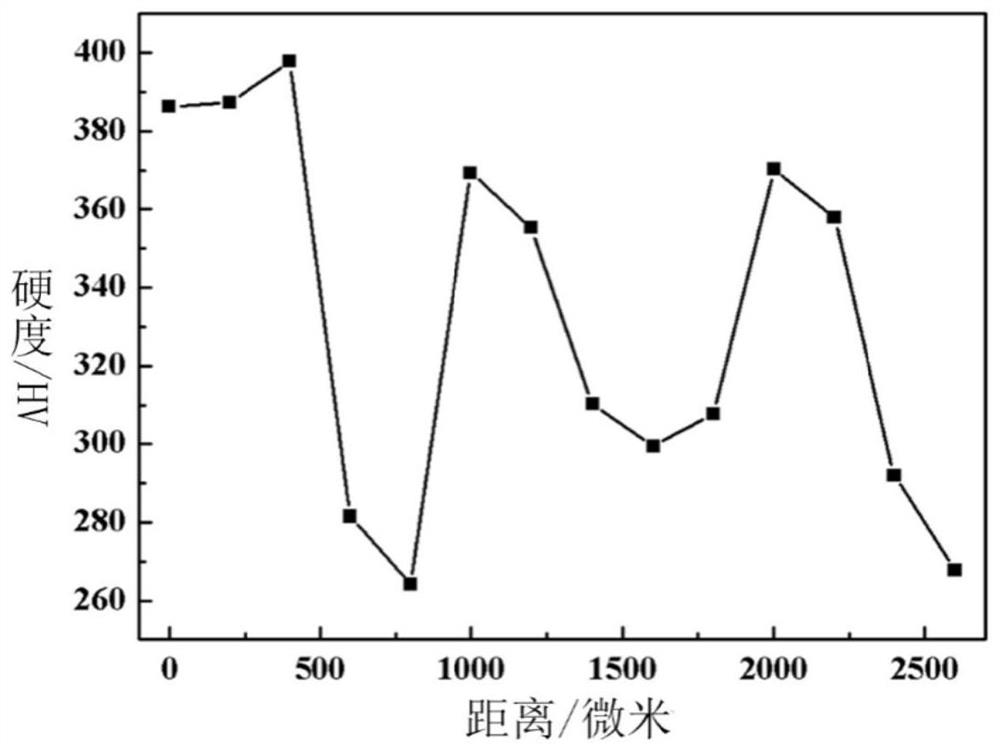A kind of additive manufacturing method of low modulus titanium/titanium layered material
An additive manufacturing, low-modulus technology, applied in the field of preparation of layered metal composite materials, can solve the problems of high cost of alloy spherical powder, high fracture toughness of TC4, high material modulus, and achieve low cost, improved plasticity, The effect of high elongation
- Summary
- Abstract
- Description
- Claims
- Application Information
AI Technical Summary
Problems solved by technology
Method used
Image
Examples
Embodiment Construction
[0033]The present invention will be described in detail below in conjunction with specific embodiments. The following examples will help those skilled in the art to further understand the present invention, but do not limit the present invention in any form. It should be noted that those skilled in the art can make several modifications and improvements without departing from the concept of the present invention. These all belong to the protection scope of the present invention.
[0034] figure 1 It is a schematic diagram of coaxial powder feeding 3D printing in an embodiment of the present invention. Powder laying 3D printing is generally more suitable for printing of a single material, which is convenient for powder recycling, but there are still certain limitations for multi-material printing. In this example, the TC4 / β titanium alloy layered material was prepared by coaxial powder feeding. Such as figure 1 As shown, the printing equipment is equipped with a MFSC2000W ...
PUM
| Property | Measurement | Unit |
|---|---|---|
| particle diameter | aaaaa | aaaaa |
| particle size | aaaaa | aaaaa |
| modulus | aaaaa | aaaaa |
Abstract
Description
Claims
Application Information
 Login to View More
Login to View More - R&D
- Intellectual Property
- Life Sciences
- Materials
- Tech Scout
- Unparalleled Data Quality
- Higher Quality Content
- 60% Fewer Hallucinations
Browse by: Latest US Patents, China's latest patents, Technical Efficacy Thesaurus, Application Domain, Technology Topic, Popular Technical Reports.
© 2025 PatSnap. All rights reserved.Legal|Privacy policy|Modern Slavery Act Transparency Statement|Sitemap|About US| Contact US: help@patsnap.com



